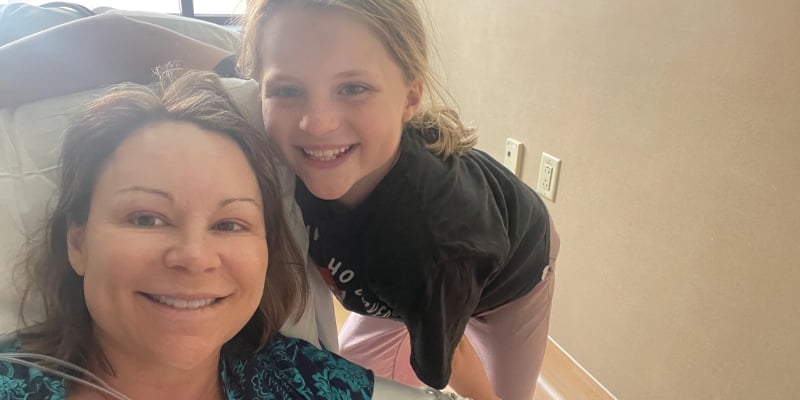University of Colorado College of Nursing 2023 BSN graduate Mark Domingo received a transfer scholarship when he applied and was accepted to the Anschutz Medical Campus BSN program and was grateful for it. “It certainly helped defray some of the costs of college.”

CU College of Nursing 2023 BSN graduate Mark Domingo |
Scholarships are typically merit-based and awarded for academic, athletic, artistic, and other achievements, financial needs, community service, and personal characteristics. Since scholarships don’t need to be repaid, they can reduce the financial burden of achieving your academic goals.
Domingo shares some tips and resources to get scholarships at a time when the average cost of tuition in the US for undergraduate students went up 10% or about $1,000 more in the last decade, according to the National Center for Education Statistics.
-
Do your research. The first step is to research scholarships specifically tailored to aspiring nurses. Also contact local hospitals, healthcare organizations, and nursing associations for potential scholarship opportunities.
-
More than 25 scholarships are listed on the University of Colorado College of Nursing website. Scholarships can be competitive and need-based. The awards range from $1,000 to $10,000.
-
The Colorado Nurses Association has a partial list of scholarships for students.
-
The Colorado Society of Advanced Practice Nurses offers scholarships for students pursuing advanced nursing specialty degrees.
-
The Care Forward Colorado Program offers free scholarships to students who attend community colleges. Those students can then attend CU Nursing through the Integrated Nursing Pathway.
-
-
Meet Eligibility Criteria. Carefully review the eligibility criteria for each scholarship program. Ensure that you meet the requirements before applying. That may include academic achievement, financial need, specific nursing specialization, community involvement, or membership in professional nursing organizations.
-
Maintain a Strong Academic Record. Many scholarship programs consider academic performance when selecting recipients. Focus on maintaining a high GPA throughout your nursing studies. If you need help, get tutoring or join study groups.
-
Write a Compelling Personal Statement. Take this opportunity to showcase your passion for nursing, your career aspirations, and how the scholarship will contribute to your educational goals. Be authentic, persuasive, and highlight any unique experiences or challenges you've faced that have shaped your vision to become a nurse. Have someone review your essay for clarity and readability, and remember to spell check.
-
Gather Strong Letters of Recommendation early. Request letters of recommendation now from professors, clinical instructors, or mentors who can speak to your skills, dedication, and potential as a nurse. If you just started college, ask your favorite high school teachers, employers or nonprofit leaders to recommend you based on your work with them. Choose people who know you well and can give good examples of your strengths and achievements. Make sure you give them at least two weeks to write a sincere, comprehensive letter on your behalf.
-
CU Nursing Scholarship Event
CU Nursing hosts an annual scholarship event honoring scholarship recipients and donors. This year’s event is August 3rd at 4.30 p.m.
Apply for Multiple Scholarships. Don't limit yourself to applying for just one scholarship. Cast a wide net and apply to as many relevant scholarships as possible. Also apply for small awards, not just the big ones. Small scholarships can add up quickly and may be less competitive to get.
-
Keep track of deadlines and requirements. Use an Excel spreadsheet or calendar to track what you’ve submitted, what’s still needed, and deadlines. Make sure you submit every document required before the deadline.
-
Seek Help from CU Nursing’s Financial Aid Office. Reach out to the financial aid office at the University of Colorado College of Nursing to inquire about available scholarships and grants.
-
Apply for General Scholarships. Nursing students can apply for general scholarships like those for women or underrepresented groups. The College Board Big Future website hosts a directory of hundreds of scholarships nationwide. Keep in mind, you may have to join the organization to apply for their scholarships. Finally, state and federal programs like the National Health Service Corps Scholarship Program, Nurse Corps Scholarship Program, and the HRSA Scholarship for Disadvantaged Students provide financial assistance to nursing students in exchange for service in underserved communities. You can also apply for federal student loans (not scholarships) at Free Application for Federal Student Aid (FAFSA) at StudentAid.gov.
-
If you don’t succeed, try again. Don’t get discouraged. Keep trying even if you don’t receive a scholarship right away. Save copies of every application that you complete so you can re-craft content to fit new applications.
Securing a scholarship for your nursing education requires research, preparation, and a proactive approach. By exploring the scholarships out there, meeting eligibility criteria, and presenting a strong application package, you can increase your chances of receiving financial support for your nursing education. Domingo reminds you to start early, stay organized, and leverage available resources to maximize your scholarship potential and pursue your dream of nursing.
Collaborator: Deborah Sherman


